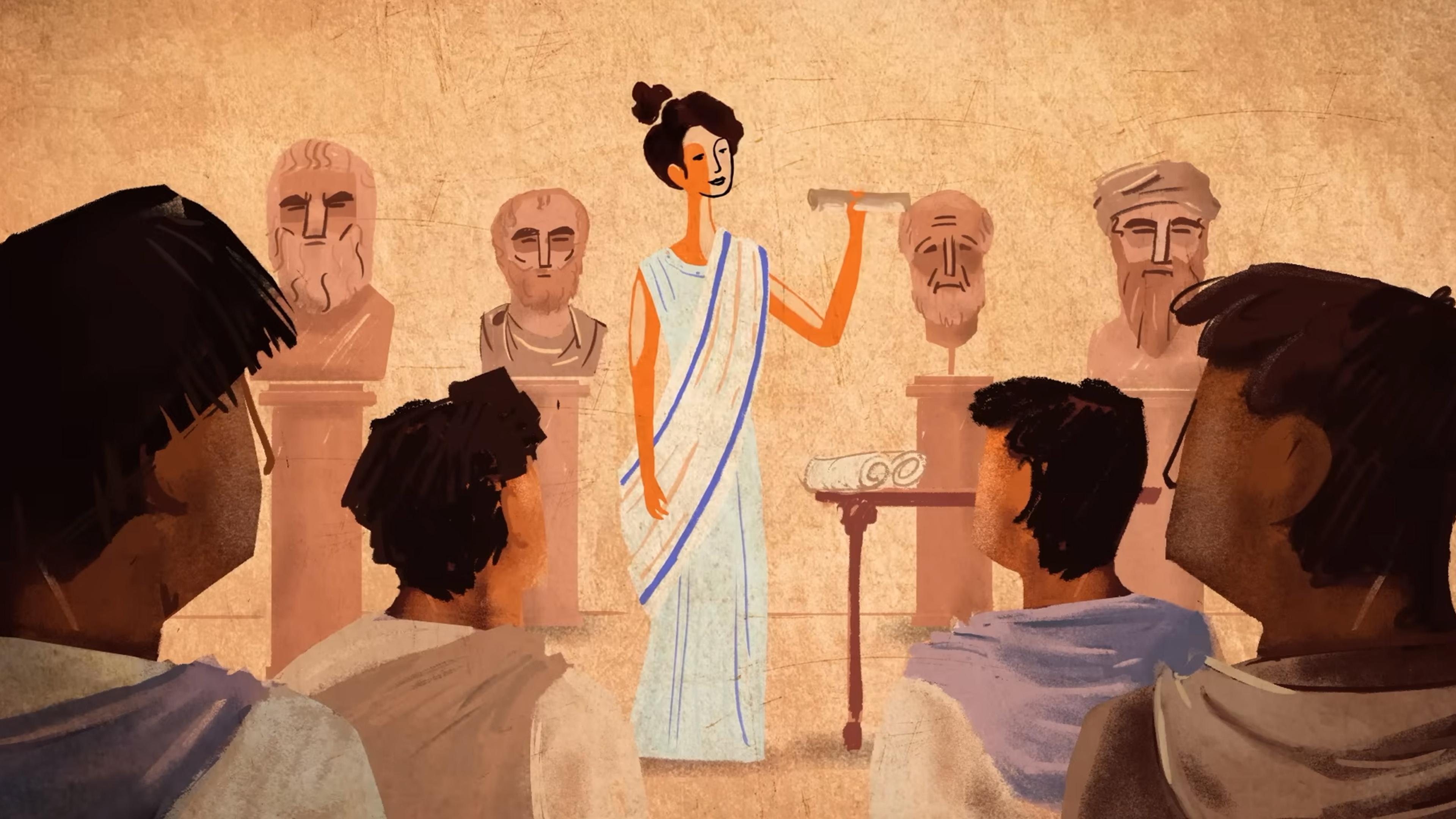Aeon Video has a monthly newsletter!
Get curated editors’ picks, peeks behind the scenes, film recommendations and more.
Albert Camus built a philosophy of humanity on a foundation of absurdity
With a worldview formed amid the unfathomable human suffering of the early 20th century, Albert Camus’s writings reflect on the inherent absurdity of the human condition, including his best-known work, the novella The Stranger (1942). But the arc of his career, from his ‘cycle of the absurd’ and his ‘cycle of revolt’ to his ‘cycle of love’ – left unfinished after Camus himself met a rather meaningless end in a car accident – points towards a humane philosophy, centred on a defiant pursuit of freedom and value in a futile, incomprehensible universe. This animation from TED-Ed scopes Camus’s career, outlook and cultural influence, shedding light on how, where he might have found hopelessness, he instead found inspiration. For more on Camus’s life, including how his worldview clashed with those of his existentialist contemporaries, watch the Aeon original animation Sartre vs Camus.

video
Animals and humans
Why be dragons? How massive, reptilian beasts entered our collective imagination
58 minutes

video
Rituals and celebrations
Flirtation, negotiation and vodka – or how to couple up in 1950s rural Poland
5 minutes

video
Biology
How the world’s richest reds are derived from an innocuous Mexican insect
5 minutes

video
Stories and literature
Robert Frost’s poetic reflection on youth, as read in his unforgettable baritone
5 minutes

video
Film and visual culture
‘Bags here are rarely innocent’ – how filmmakers work around censorship in Iran
8 minutes

video
Language and linguistics
Closed captions suck. Here’s one artist’s inventive project to make them better
8 minutes

video
Thinkers and theories
A rare female scholar of the Roman Empire, Hypatia lived and died as a secular voice
5 minutes

video
Architecture
The celebrated architect who took inspiration from sitting, waiting and contemplating
29 minutes

video
Subcultures
Drop into London’s eclectic skate scene, where newbies and old-timers find community
5 minutes